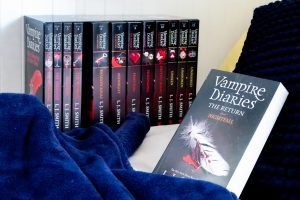AD | Affiliate Links
If you enjoy reading but have a hard time finding books you enjoy, you may need to find a few new ways to get book recommendations and create a reading list. With very little research, you can create a fine list of books to look forward to reading. In no time, you will be overwhelmed with exciting titles.
How to Create a Reading List

Ask Friends or Family
Find people you know who enjoy reading and look for recommendations. If you love science fiction and have friends who do too, find out what they are reading. However, don’t be afraid to branch out to different genres. The beauty of asking friends and family is that you can find out what they liked about the book and decide if you might like it too.
Check out Reading Group Web Sites
There are several reading group websites where you can read synopses of popular reading group book picks. You can find out what the top books are, or search alphabetically. Many of these sites also feature different books every few days.
Browse Book Catalogues
You can sign up to receive book catalogues to find out about different books that might not make the best-seller lists but are still worthy reads. There are catalogues for every kind of book genre you can imagine and some even cover many genres. Basbleu.com boasts that it’s the “champion of the odd little book and your source for inspired gifts and accessories for readers.” This catalogue is free and is a great resource for learning about books that might otherwise slide under the radar. The reviews are often written by customers and are most intriguing.

Take Advice from On-Line Bookseller Customers
One of the best features at online retailers like Amazon.com is the “customers who bought this book also bought…” feature. This is an excellent way to find similar books you may be interested in. Take a moment to check out a recent book you read and enjoyed. Look and see what Amazon recommends and follow the links. The great part is that you don’t have to rely on the bookseller’s description of the book alone: you have actual customer reviews to read and consider.
Often a review will have other recommendations within it. For example, one reviewer might write, “Dick and Jane were ok, but Sam and Diane were much better.”
Keep Track of Information
Once your list of books to read begins to grow, figure out a way to keep track of it. One way to do this is with an Excel spreadsheet. A simple column of title and author is all that is needed, but if you want to get fancy, add a column where you can make an “x mark” after you’ve read the book. Sharing a reading list created on Excel is a cinch. Most of the time you can e-mail your file, but you could also quickly print your reading list out.
Some people like to keep a notebook or journal to write down the names of books to read. A small spiral-bound notepad is inexpensive and fits in a purse, pocket, or car glove box. However, sharing the book might be a little more of a risk and it is harder to search and copy.
Another great way to track what you want to read, are currently reading or have read is by setting up a Goodreads account. It is free to do and you can invite friends and family, follow authors etc.,
Bonus Tip: How to Read for Free
Once you have your list of books to read, take out your trusty library card. If you don’t have one, go and get one. It will be your new best friend. Simply log on to your library’s website and search the catalogue for the book you want to read. Request a copy of the book and in a few days, your library will call and let you know the book is ready to pick up. You won’t have to write down a Dewy decimal number on a little piece of scrap paper or search the stacks. It’s easy.
The library’s website will let you know if the book has any other requests. Popular books may have a long waiting list, but don’t worry. Request the book, then request another to read while you’re waiting for it.
An Example of a Reading List
This reading list represents several novels and plays that I highly recommend for your next excursion into reading. When you feel like reading a novel or play that uses a powerful narrative voice to identify something genuine about the human condition, come to this suggested reading list. These books are by no means ‘light’ reading, but there is far too much of that fluff out there anyway.
Some of the authors will be recognizable, and some you will have to look up. All of them are excellent reads. So without further ado let’s take a look at some classics you might want to add to your reading list.

The Name of the Rose, Umberto Eco
This novel submerges the reader in a tale of murder, intrigue, philosophy, art, and semiotics. Set in a monastery, the tale directly involves the unsolved murders of several monks but turns out to involve much more. Labyrinthine libraries, Catholic inquisitors, and ideological warfare form the epic scope of this novel of the Middle Ages. Eco creates a complete world in this book, and it should not be missed.
For Whom the Bell Tolls, Ernest Hemingway
Perhaps Hemingway’s best novel, For Whom the Bell Tolls follows the path of a soldier in the International Brigades during the Spanish Civil War. When given orders to blow a bridge behind the Fascist lines, Robert Jordan hooks up with Spanish partisans for support. Hemingway was a journalist in Madrid during this time and witnessed the horrors of the war firsthand. His powerful portrait of the war through one man represents one of the greatest novels of our time.
Fury, Salman Rushdie
One of Rushdie’s novels, tells the story of Malik Solanka, a successful and learned man who suddenly finds himself filled with unbelievable rage. Alone on the streets of New York, the reader follows him through the decadence and futility of modern culture. Rushdie has constructed a vehicle of deconstruction with this novel that tears aside the shallow trappings of our lives to expose the emptiness of our hearts, our hunger for genuine communication, and our inner rage at the institutions of society.
The Condemned of Altona, Jean-Paul Sartre
The Condemned of Altona represents a twisted drama about post-war Germany from the original author of existentialist philosophy. The destructive power of guilt couples with the aimless conflict of stagnant relationships in this darkly comic piece about the real psychological dissonance created by war.
A Farwell to Arms, Ernest Hemingway
In this novel, Hemingway draws on their experience as an ambulance driver in WWI. The short, terse style typical of Hemingway resonates strongly in this novel about love, war, and loss.
Baudolino, Umberto Eco
Baudolino has the gift of language. Within minutes, he can fluently speak a foreign tongue. Through a chance meeting with Frederick I, Baudolino is raised from the status of a peasant into a royal adviser. Finding friends at school and at the court, Baudolino constructs a quest to find the lost tribe of Israel in a strange and distant land that lives only in his mind (or does it?). This novel plumbs the depths of the medieval imagination while at the same time exploring the inner relationships of language, lies, religious faith, and symbolism.
Richard II, William Shakespeare
This play follows the life of the weak king Richard from the height of his power to his eventual demise at the hand of traitors. At its core, the story is one of unbridled hubris which meets its demise at the hands of Henry Bolingbroke, whose strength and decisiveness contrast sharply with Richard. However, Richard’s journey from the throne to the tomb presents a man unwittingly born into a role he was not fit to serve and who furthermore has his world torn down around his ears.
The Normal Heart, by Larry Kramer
This play by the lately deceased Larry Kramer covers the early unwillingness of the press to educate the public about the AIDS virus in the 1980s. A stunning and heartbreaking drama, this play stands as a call to action against prejudice and ambivalence in the face of human suffering.






